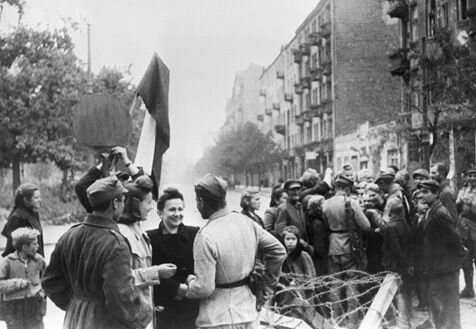It took place in March 1945 or 70 years ago. The 1st Ukrainian Front launched the Upper Silesian Offensive which actually was the continuation of the Vistula-Oder Operation to liberate the Polish territory west of Vistula.
Poland was liberated by the 1st Belorussian, 2d Belorussian, 1st Ukrainian and 4th Ukrainian fronts of the Red Army. Liberating Europe from Nazism the fronts were carrying out a number of interrelated missions. The Red Army was delivering final blows to the enemy in Poland to push the enemy out of the country and pave the way for the offensive against Berlin. It had to help the allies who were begging for help. They were in trouble as a result of the Ardennes and the Vosges offensive launched by the remaining German SS units and the «incapable» formations transported from the German rear to create a bulge in the Allied front line. Having achieved a success in the west, the Hitler’s command set the mission to hold Poland and its capital at any price.
30 most capable divisions, two brigades and the powerful Warsaw garrison (4 infantry battalions) were concentrated near Serock and Jaslo. There were up to fifty separate battalions located elsewhere. 7 fortification areas were erected between the Vistula and the Oder. Germans believed them to be unassailable. The first area near the Vistula was the strongest to be defended by the main forces of Army group «A».
No matter all the efforts to fortify the positions, the forward defensive line was broken by the 1st Belorussian Front at the start of the January offensive. In five days the Soviet forces liberated Warsaw and broke the 500 km long frontline to advance 150 km deep into the enemy’s defense lines. British Prime Minister Winston Churchill wrote to Josef Stalin on January 27, 1945, «We are delighted by your glorious victories … Accept our warmest thanks and congratulations on the historical feats».
The German Army group «A» suffered a major defeat. The 1st Ukrainian Front liberated Krakow, the ancient Polish capital, and entered the German territory. In early February the major offensive of WWII was a complete success.

Residents of Warsaw and Red Army soldiers together
It’s a pity that today Poland has forgotten the well-known words of Winston Churchill, who said, «Without the Russian armies Poland would have been destroyed or enslaved, and the Polish nation itself would have been wiped from the face of the earth. But the valiant Russian armies are liberating Poland, and no other forces in the world could have done so».
Today they try to shy away from mentioning the fact that over 600 thousand Soviet soldiers gave their lives for liberation of Poland from Nazis.
The proud Polish nation that they were considered to be «untermensch» – the people of second rate. They were not allowed to use the same transport as Aryans. The representatives of the proud Polish nation have also forgotten the warning signs which the Nazis hung on the doors of the restaurants, cinemas and city parks of occupied Polish cities: «Für Hunde und Polen verboten!» («No dogs or Poles allowed!»)
They have forgotten that during the Nazi occupation Poland lost 21, 4 % of its population. Poland had more death factories on its soil – the most horrible places in human history – Auschwitz, Treblinka and Maidanek concentration and forced-labor camps …
They have forgotten that Germans destroyed around 40% of buildings leaving a third of population without shelter and food.
The material assistance the USSR provided for the recovery of postwar Poland has also been forgotten; the Soviet Union renounced all claims to German property in Poland and yielded 15% of reparation payments and 15% of industrial equipment exported from Germany to Warsaw. They have forgotten the fact that when bread was being rationed in the USSR, in January 1945 the Soviet Union started free shipments of 60,000 tons of grain to Poland. It is possible that many Polish Russophobes and their parents owe their lives to this very grain.
They have forgotten that thanks only to the unbending position of the USSR, or of Stalin, to be more exact, the current Polish-German border was drawn through the Oder-Neisse line, which gave Poland access to the Baltic Sea and increased the country's territory by over 100,000 square kilometers.
They have forgotten that in the 1980s, so difficult for Poland, the USSR gave over 7 billion rubles in free assistance, and in the early 1990s Russia essentially forgave Poland's debt of 5.3 billion rubles, at that time not yet devalued, in foreign currency. Today Polish politicians call all this the «Soviet occupation» and permit lowlifes to desecrate the memory and graves of fallen Red Army soldiers. They do not like to recall these and other facts, like the mass deaths of Russian, Ukrainian, Belorussian and German prisoners in Polish concentration camps in modern Poland. But the Poles themselves do not mince matters with regard to their neighbors' historical memory.
Today Ukraine advocates the ideas of Stepan Bandera whose followers slaughtered dozens of thousands people just because they were Poles. The people without shame do not remember their past. They refuse to honor the memory of the Soviet and Polish soldiers who together hoisted the Victory Banner over Warsaw in 1945.









